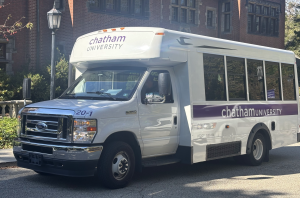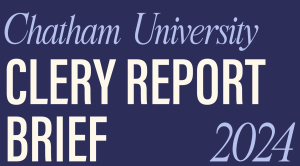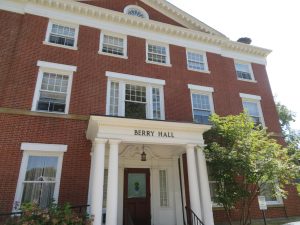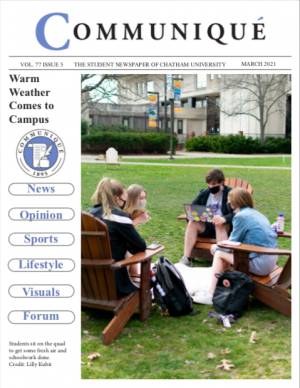How rude! Why celebrities shouldn’t be the focus of our rage in the academia scandal
April 29, 2019
By Dana English
When news broke in early March of Operation Varsity Blues — the largest college admissions scandal ever prosecuted by the Department of Justice — the nation was rightfully outraged.
We watched in collective disgust as news outlets highlighted the wrongdoings of a select few, including “Full House” darling Lori Loughlin and “Desperate Housewives” star Felicity Huffman, who both unfairly secured placement for their children at elite institutions by way of fraud and bribery.


While the shameful actions of our favorite sitcom moms are upsetting, Lynette and Aunt Becky’s latter-day sins shouldn’t be the sole focus of our rage, nor the primary topic of our conversation.
These Hollywood starlets and their privileged offspring are just the tip of the iceberg in a system that keeps the fairness of the college admissions process in a permanent state of imbalance.
Centering our discussion around high-profile celebrities and Ivy League schools makes issues like these seem less real and allows us to dismiss them as “first-world” scenarios. In reality, this tipping of scales to the benefit of the wealthy happens with regularity at schools of every level and in ways we don’t often recognize as problematic.
Higher education has long been riddled with inequities and, despite the more obviously criminal nature of the behavior, it has been brought to light in the so-called Varsity Blues case.
A recent study completed by a team of Harvard and Brown university researchers found that the children of parents whose income falls into the 1 percent are 77 times more likely to attend elite universities than those in the lower 20 percent.
Students who attend high school in rural or low-income areas are already at a disadvantage when applying to these schools because they often don’t have access to the same opportunities as students in wealthy districts.
My rural high school didn’t offer high-dollar competitive sports such as tennis, soccer, lacrosse or rowing. Our football and basketball teams were rarely competitive and sometimes coachless, leaving little opportunity for students to get into college on a sports scholarship.
Students in these schools faced a similar outlook in terms of academic scholarships, as they rarely had the staff or resources to offer the AP courses that college admissions counselors hope to see on a high school transcript.
Even seemingly harmless features like early decision and demonstrated interest tip the scales in the direction of applicants that come from money. Should a student need more time to select a school in order to compare financial aid packages or should they not have the money to travel for campus tours before applying, then they may be less likely to be accepted than those who can.
Some of these injustices seem to be baked right into the standard college admissions application.
The identification of so-called legacy applicants, for example, is discriminatory. This practice allows applicants to disclose whether or not they have a parent or sibling who attended the same school and often gives preference to those who do.
While many see this as a harmless way of passing down the tradition of attending a shared alma mater from generation to generation, many don’t realize it is also giving preference to those who have a family history of educational achievement over first-generation college students.
Many are using this scandal as an opportunity to protest affirmative action policies, believing them to place minority students at an unfair advantage. This is ridiculous, considering our country’s history of systemic racism that places people of color at a disadvantage.
Besides, a 2004 Princeton research study found that the largest admissions advantages go to athletes, regardless of their academic performance, over both minority and legacy students.
Even if you believe that both admissions preference by way of race or wealth are problematic, this doesn’t somehow justify or cancel out the fact that wealth-based preference is wrong.
Why should your anger be directed at students you suspect don’t make the cut, instead of at the administrators or coaches who line their pockets with the gifts from the wealthy parents of applicants?
Hopefully, an institution that claims to be academically elite will weed out any student not qualified to be there with a challenging curriculum.
We need to be mad at a broken system, not the victims of it.






